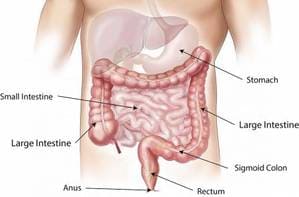Red meat has long been a staple in many diets due to its rich flavor and protein content. However, some people experience stomach pain after consuming red meat. In this article, we will explore the reasons behind this discomfort.
Understanding the digestive process of red meat, the impact of its high fat content, and potential food sensitivities or allergies can provide insights into why red meat may cause stomach pain for certain individuals.
Additionally, we will offer tips to help alleviate this discomfort and suggest alternative protein sources for those with sensitivities or digestive issues.
Red meat has long been a popular choice among meat lovers around the world. With its rich flavor and versatility in cooking, it has become a staple in many cuisines. From juicy steaks to succulent burgers, red meat offers a satisfying dining experience. However, despite its popularity, it’s important to understand that consuming red meat can sometimes lead to stomach pain. Let’s explore the reasons behind this discomfort and how to alleviate it.
Explanation of stomach pain caused by red meat consumption
Stomach pain caused by red meat consumption can have various explanations. One reason is the high fat content present in red meat, which can slow down digestion and lead to discomfort. Additionally, the protein in red meat stimulates the production of stomach acid, which can result in irritation and pain for some individuals.
Food sensitivities or allergies to specific proteins in red meat can also trigger stomach pain. Factors such as the processing and additives in red meat, as well as the state of one’s gut microbiome or pre-existing conditions like gastritis or GERD, can further contribute to this discomfort.
To alleviate stomach pain caused by red meat consumption, individuals may consider reducing their intake of high-fat meats, opting for leaner cuts, and exploring alternative protein sources that are easier on digestion.
Digestive Process of Red Meat
The digestive process of red meat begins in the stomach. Once consumed, red meat is broken down by the enzymes in the stomach, such as pepsin. These enzymes help to break down proteins into smaller, more easily digestible components. The stomach acid also plays a role in the digestion of red meat by further breaking it down. This process allows for the absorption of nutrients from the meat into the bloodstream. However, some individuals may experience stomach pain during this process due to various factors which will be discussed later in this article.
Absorption process of red meat in the stomach
The absorption process of red meat in the stomach begins as it gets broken down by stomach acid and digestive enzymes. The small pieces of meat then move into the small intestine, where the nutrients are absorbed into the bloodstream. The protein from red meat is broken down into amino acids, which are essential for various bodily functions. However, for some individuals, this process can lead to stomach pain or discomfort due to various factors such as high fat content or sensitivities.
Enzymes involved in breaking down red meat
When it comes to breaking down red meat during digestion, enzymes play a crucial role. One important enzyme involved is called pepsin, which is produced by the stomach lining. Pepsin helps to break down proteins in the red meat into smaller peptides, making them easier to absorb. Additionally, other digestive enzymes like trypsin and chymotrypsin, produced by the pancreas, further assist in breaking down proteins for absorption in the small intestine. These enzymes work together to ensure efficient digestion of red meat.
High Fat Content
The high fat content in red meat can contribute to stomach pain. When consumed in excess, the body has a harder time breaking down and digesting these fats. Saturated fats, commonly found in red meat, can also irritate the stomach lining and increase the production of stomach acid. To avoid stomach pain, it’s important to moderate your intake of fatty red meats and opt for leaner alternatives when possible.
Impact of high fat content in red meat on digestion
The high fat content in red meat can have a significant impact on digestion. Fat takes longer to digest compared to other nutrients, which means that it stays in the stomach for a longer period of time. This can lead to feelings of heaviness and discomfort in the stomach, causing pain and bloating. Additionally, consuming large amounts of fatty meat can also increase the production of bile, further contributing to digestive issues. Therefore, individuals who experience stomach pain may want to consider reducing their intake of high-fat red meats.
Effects of saturated fats on the stomach lining
Saturated fats, commonly found in red meat, can have detrimental effects on the stomach lining. These fats can increase the production of stomach acid and contribute to inflammation in the gastrointestinal tract. Over time, this can lead to discomfort and stomach pain. It is advisable to limit the consumption of red meat high in saturated fats to help maintain a healthy stomach lining and reduce the risk of digestive issues.
Protein and Stomach Acid
How protein in red meat triggers stomach acid production: When we consume red meat, our body recognizes it as a source of protein. In response, the stomach releases gastric acid to aid in the breakdown and digestion of the proteins present in the meat, says Reyus Mammadli. However, excessive production of stomach acid can lead to discomfort and stomach pain. This is why individuals who are sensitive or have pre-existing conditions may experience stomach pain after consuming red meat.
How protein in red meat triggers stomach acid production
When protein from red meat enters the stomach, it stimulates the release of gastrin, a hormone that triggers the production of stomach acid. This is because protein requires an acidic environment for proper digestion. The increase in stomach acid helps break down the proteins into smaller components, allowing for better absorption and utilization by the body. However, excessive stomach acid production can lead to discomfort and acidity-related issues.
Connection between excessive stomach acid and stomach pain
Excessive stomach acid is one of the main culprits behind stomach pain caused by red meat consumption. When we eat red meat, especially high-protein varieties, our body releases more stomach acid to aid in the digestion process. However, if there is an imbalance and too much acid is produced, it can result in discomfort, including burning sensations and abdominal pain. Keeping stomach acid levels balanced is crucial for avoiding such discomfort.

Food Sensitivities and Allergies
Individuals with specific sensitivities or allergies to red meat may experience stomach pain after consuming it. Some individuals may be allergic to certain proteins found in red meat, such as alpha-gal. This immunological response triggers symptoms like stomach pain, nausea, and diarrhea. Similarly, some people may have sensitivities to additives or preservatives commonly found in processed red meat, leading to gastrointestinal discomfort. If you suspect a red meat allergy or sensitivity, consulting a healthcare professional is important for proper diagnosis and guidance on dietary adjustments.
Red meat allergies and sensitivities causing stomach pain
Red meat allergies and sensitivities can cause stomach pain in some individuals. When someone is allergic or sensitive to red meat, their immune system reacts to specific proteins found in the meat, leading to symptoms such as abdominal discomfort, bloating, and diarrhea. It’s important for individuals experiencing these symptoms to identify their sensitivity or allergy and avoid consuming red meat, opting for alternative protein sources instead.
Immune system response to specific proteins in red meat
The immune system plays a crucial role in detecting and responding to foreign substances in the body, including proteins found in red meat. In some individuals, consumption of specific proteins present in red meat can trigger an immune response. This immune reaction can lead to inflammation and discomfort in the stomach, resulting in stomach pain. It is important to note that this response varies from person to person, and not everyone will experience stomach pain after consuming red meat.
Processing and Additives
Effects of processing and additives on red meat’s digestibility can contribute to stomach pain. Processing techniques such as curing, smoking, and marinating can introduce chemicals and additives that may be difficult for some individuals to digest. These additives can irritate the digestive system and cause discomfort.
Additionally, certain preservatives used in processed meats can have adverse effects on the stomach lining, leading to inflammation and pain. Opting for fresh, unprocessed red meat may help alleviate stomach pain caused by these factors.
Effects of processing and additives on red meat’s digestibility
Processing and additives can also have an impact on the digestibility of red meat. Certain processing methods, such as curing or smoking, can make the meat harder to break down in the stomach, leading to digestive discomfort. Additionally, additives like preservatives or flavor enhancers may disrupt the natural digestive process and contribute to stomach pain. Being mindful of the processing and additives in red meat can help reduce the chances of experiencing digestive issues after consumption.
Potential irritants and preservatives leading to stomach pain
Potential irritants and preservatives found in red meat can contribute to stomach pain. Chemical additives such as sulfites, nitrates, and monosodium glutamate (MSG) are commonly used in processed meats to enhance flavor and prolong shelf life. These additives can cause irritation in some individuals, leading to digestive discomfort and stomach pain. It is important to read labels and opt for natural or organic red meat options to minimize the intake of these potential irritants.
Red Meat and Gut Microbiome

The relationship between red meat and the gut microbiome is an important aspect to consider when it comes to stomach pain. The gut microbiome refers to the community of microorganisms in our digestive tract that play a crucial role in maintaining overall health. When red meat is consumed, it can potentially alter the composition and function of the gut microbiome, leading to digestive issues and stomach pain. Therefore, individuals experiencing such symptoms may benefit from reducing their intake of red meat or exploring alternatives.
Relation between red meat consumption and gut microbiome
Red meat consumption has been found to have an impact on the gut microbiome. Studies have shown that individuals who consume large amounts of red meat tend to have a less diverse gut microbiota compared to those who consume more plant-based diets. This imbalance in the microbiome can lead to digestive issues, including stomach pain. It is important to maintain a balanced diet and consider alternatives to red meat to support a healthy gut.
Role of gut bacteria in breaking down red meat
Gut bacteria play a crucial role in breaking down red meat during the digestion process. Certain species of bacteria, such as Prevotella and Bacteroides, have enzymes that can break down complex proteins in meat. These bacteria help to further break down the proteins into smaller peptides and amino acids, which are then absorbed by the intestines. However, an imbalance in gut bacteria or a lack of certain beneficial strains can lead to difficulties in digesting red meat, causing stomach pain.
Pre-existing Conditions
Pre-existing conditions can further contribute to stomach pain caused by red meat consumption. For individuals with conditions like gastritis or gastroesophageal reflux disease (GERD), the high-fat content and protein in red meat can worsen symptoms, states iythealth.com. These conditions involve inflammation of the stomach lining or excessive stomach acid production, making the digestion of red meat more challenging. It is important for individuals with these conditions to be mindful of their red meat intake and find alternatives that are easier on their digestive system.
Impact of pre-existing conditions on red meat digestion
Pre-existing conditions can have a significant impact on how red meat is digested in the body. Conditions like gastritis or gastroesophageal reflux disease (GERD) can cause stomach pain and discomfort when consuming red meat. These conditions may make it harder for the stomach to break down the proteins and fats in red meat, leading to digestive issues. It is important for individuals with these conditions to be mindful of their red meat consumption and work with their healthcare provider to find alternatives that are easier on their digestive system.
Conditions like gastritis or GERD leading to stomach pain
Conditions like gastritis or GERD can contribute to the development of stomach pain after consuming red meat. Gastritis is characterized by inflammation of the stomach lining, which can be aggravated by the high fat content and protein in red meat. Similarly, individuals with gastroesophageal reflux disease (GERD) may experience discomfort due to the acid reflux triggered by consuming red meat. It’s important for individuals with these conditions to be mindful of their diet and seek appropriate medical advice to manage their symptoms effectively.
Conclusion
In conclusion, stomach pain caused by red meat consumption can be attributed to various factors such as the digestive process, high fat content, protein triggering stomach acid production, food sensitivities or allergies, processing and additives, and the individual’s pre-existing conditions. To reduce stomach pain, individuals can try alternative sources of protein or opt for leaner cuts of red meat. It is always advisable to consult a healthcare professional for personalized advice based on individual needs and health conditions.
Tips for reducing stomach pain caused by red meat
- Opt for lean cuts of red meat: Choose lean cuts of red meat, such as sirloin or tenderloin, which have lower fat content and are easier to digest.
- Marinate the meat: Marinating the meat before cooking can help break down proteins and make it more tender, reducing the chances of stomach pain.
- Cook the meat thoroughly: Ensure that red meat is cooked thoroughly to eliminate any potential bacteria or parasites that could cause stomach pain.
- Incorporate digestive aids: Consider using digestive enzymes or probiotics that can support digestion and help break down proteins more efficiently.
- Pair red meat with fiber-rich foods: Consuming fiber-rich foods, such as vegetables or whole grains, alongside red meat can help regulate digestion and reduce the risk of stomach discomfort.
- Hydrate adequately: Drinking enough water throughout the day aids in digestion and helps prevent constipation, which can contribute to stomach pain.
- Listen to your body: If you consistently experience stomach pain after consuming red meat, it may be best to consult a healthcare professional for further evaluation and potential dietary adjustments.
Remember, everyone’s body reacts differently to food, so it’s important to pay attention to how you feel and make choices that work best for your individual needs.
Suggested alternatives to red meat for individuals with sensitivity or digestive issues
For individuals who experience sensitivity or digestive issues after consuming red meat, there are several alternatives to consider. Opting for lean sources of protein such as poultry, fish, or plant-based options like tofu and legumes can help alleviate stomach pain. Incorporating a variety of fruits, vegetables, and whole grains into meals provides essential nutrients and supports healthy digestion. Experimenting with alternative protein sources can help individuals find satisfying options that work well with their unique needs.
About the Author
Reyus Mammadli is the author of this health blog since 2008. With a background in medical and biotechnical devices, he has over 15 years of experience working with medical literature and expert guidelines from WHO, CDC, Mayo Clinic, and others. His goal is to present clear, accurate health information for everyday readers — not as a substitute for medical advice.







